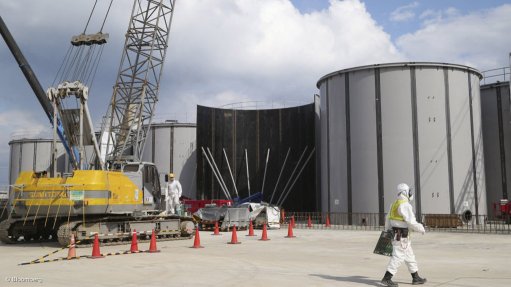
Fukushima Daiichi nuclear power plant
Photo by: Bloomberg
Although the accident at the Fukushima Daiichi nuclear power plant in Japan, following the devastating earthquake and tsunami in March 2011, set the global nuclear energy sector back, this has since been overcome. So affirmed US Deputy Secretary of Energy Daniel Poneman at the Nuclear Africa 2014 conference in Midrand (between Johannesburg and Pretoria) on Tuesday.
"We had a setback after Fukushima. The whole world took a step back," he said. "Since that time there has been a renewed commitment by most countries, that nuclear has a critical role."
"I think the votes are in, what the role of nuclear energy will be," he added. "We now have in the order of 70 nuclear plants being built around the world. The needs are tremendous, the opportunities are even greater."
Poneman highlighted that President Barack Obama had reaffirmed the importance of nuclear power in the US energy system. The President regarded it as an important factor in fulfilling his climate change and energy transformation agenda.
An important part of Obama's climate change policy was international cooperation. "It's going to be critical that we work together," noted the Deputy Secretary. With South Africa, this cooperation could include the nuclear sector. The US, pointed out Poneman, has "a burgeoning relationship with South Africa".
"We certainly understand the approach [to nuclear energy they the South African government] are taking," he stated. "We have excellent [nuclear] training programmes – we have tremendous programmes. And we'd be happy to send students here, as well."
Poneman recalled South Africa's abandoned Pebble Bed Modular Reactor project, which had involved US nuclear company Westinghouse. He suggested that some in the industry were still inspired by the idea of small modular nuclear reactors.